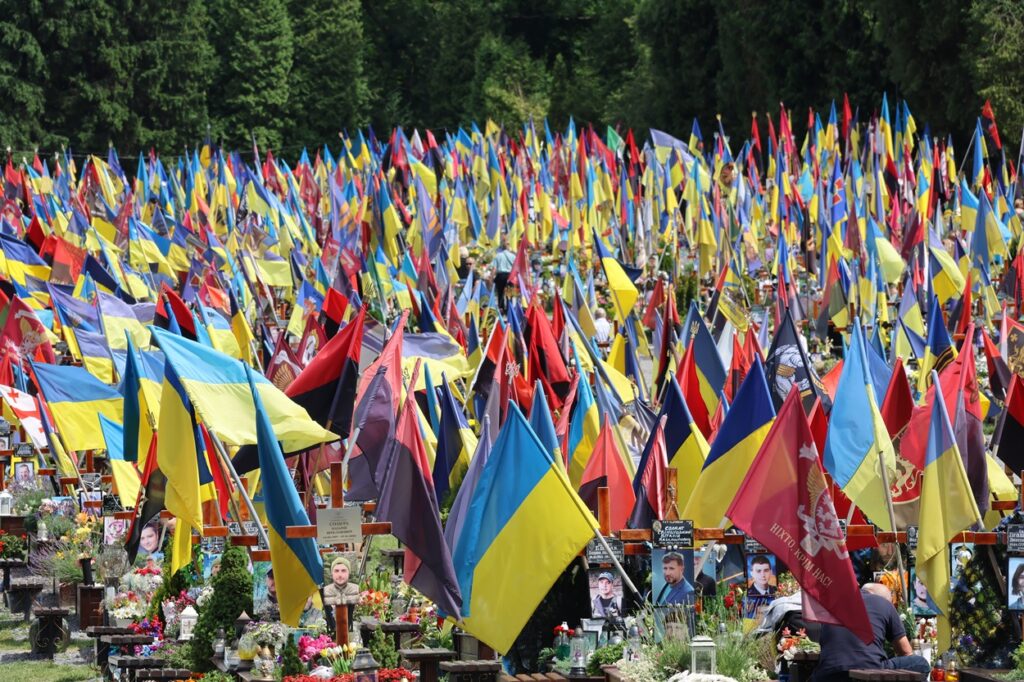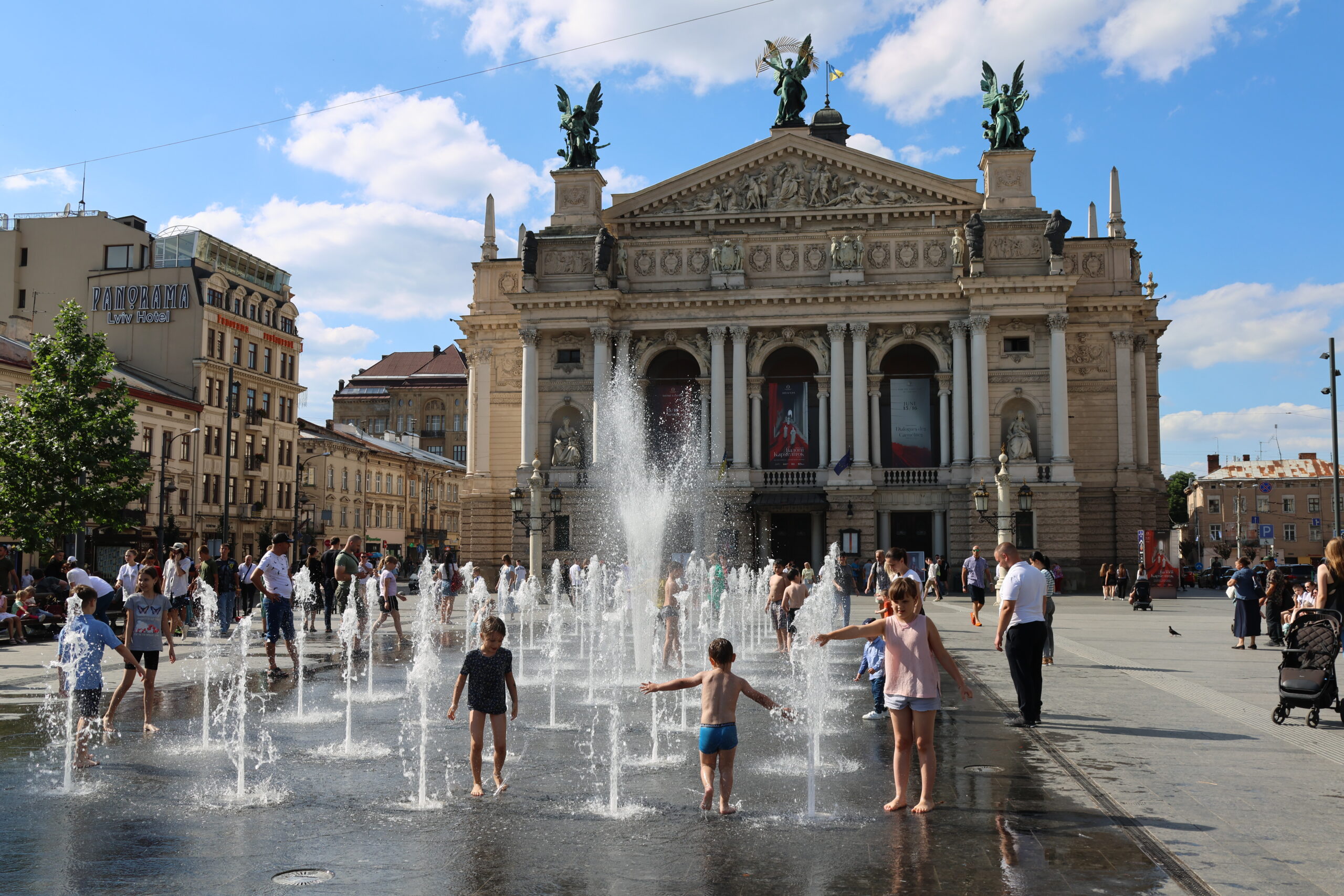Children playing in front of the opera house in Lviv. Photo: Lars Bugge Aarset
Lars Bugge Aarset volunteers with communication work for Fritt Ukraina. He joined a transport mission in June 2024. Here is his account of the journey.
At first glance, little resembles a country at war when watching children playing in the fountain in front of the opera house in Lviv. Life appears to go on as usual for the residents of this beautiful city. Although we were woken up by air raid alarms at night, Lviv feels safe.
I had the opportunity to join a transport mission with Fritt Ukraina. It turned out to be a journey filled with stark contrasts.
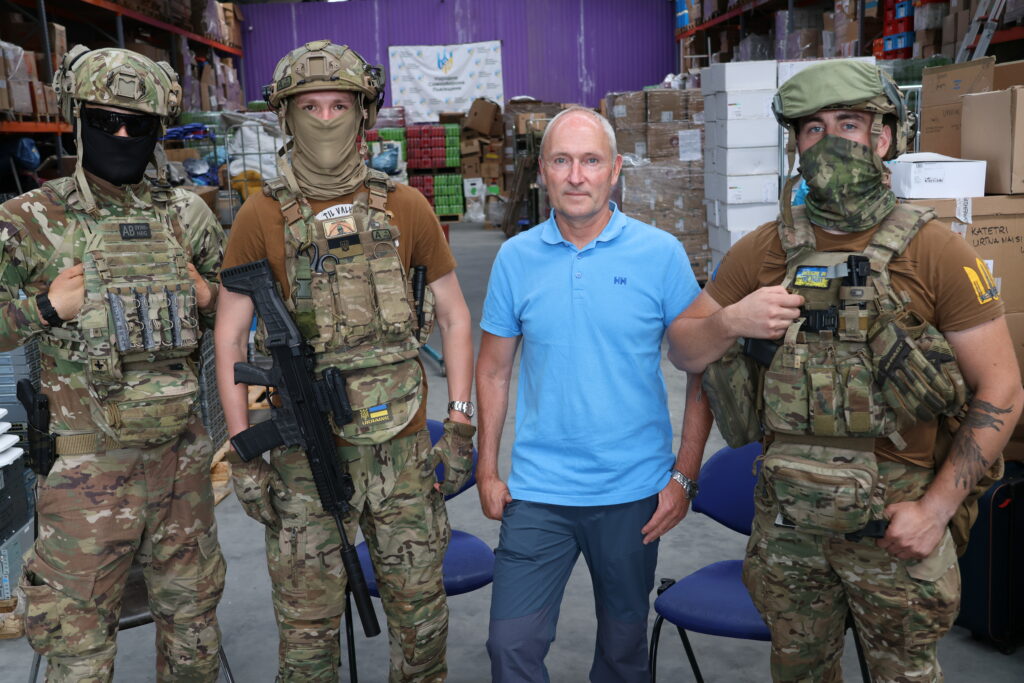
In Combat the Same Morning
Meeting soldiers who had been in combat that same morning was a powerful experience. The legendary “Lion” leads a squadron in HUR, an intelligence unit operating drones. They were deeply grateful for the equipment and vehicles we delivered. In addition to cars and drones, heavy-duty power banks were in high demand. Their electronics also need power.
Vehicles are crucial for reaching Russian forces quickly and getting the drones within range. Equally important is the ability to retreat rapidly to avoid Russian weapons. While greeting the soldiers, the “Lion” found a safety pin from a hand grenade in his glove. He had thrown the grenade earlier that morning.
When asked how they maintain their motivation, they simply replied:
“It’s obvious – we have family and children.”
The soldiers were returning to the front that same evening.
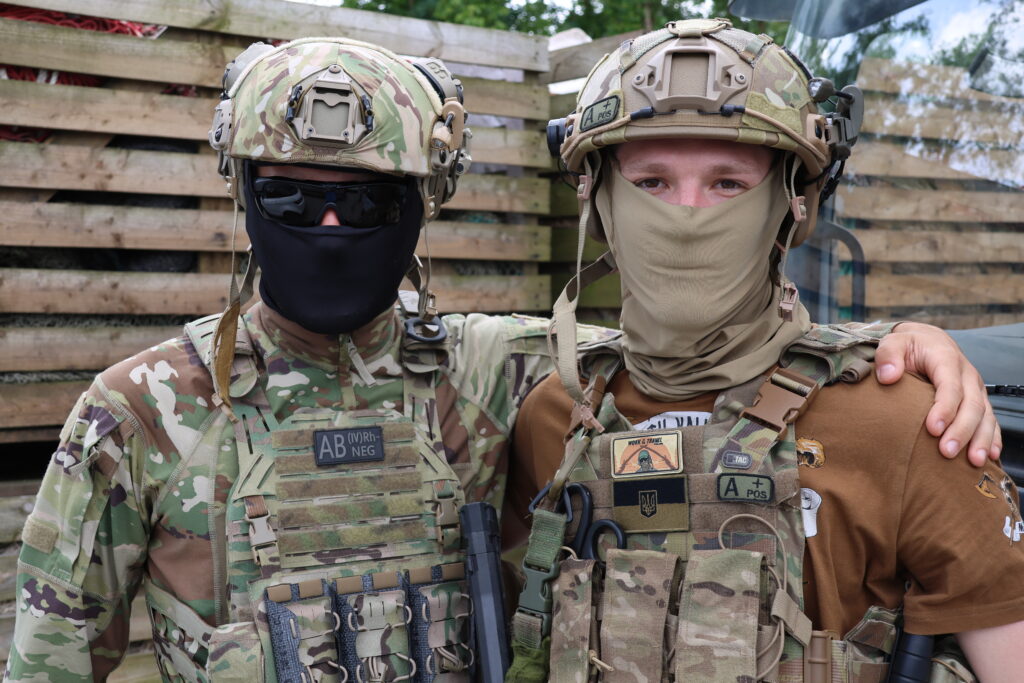
Meeting the soldiers made the visit to the war cemetery even more emotional. Here, more of the region’s soldiers are buried regularly, and the site is continuously expanded with new graves.
Every grave has a photo, and it is clear that the fallen are not just young men. They are ordinary people of all ages and genders. It was deeply moving to see wives, children, siblings, and parents tending the graves and mourning their loved ones.
The newest graves were only a few days old.
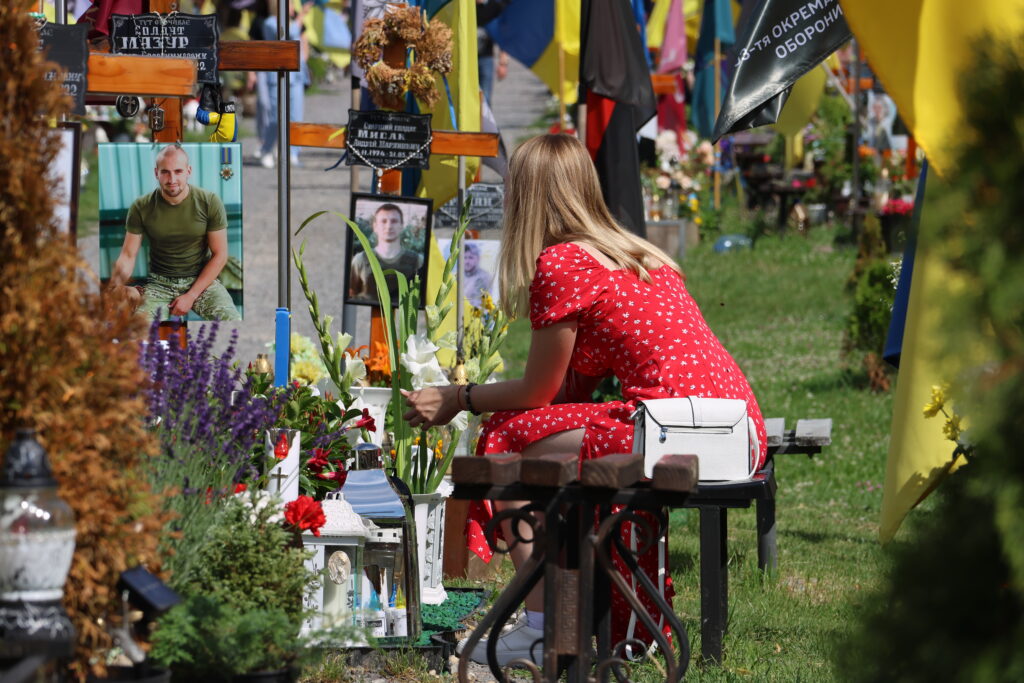
Over Half of the Nation’s Power Supply Is Destroyed
The Ukrainians display impressive resilience and determination to look ahead and keep society running. Deputy Mayor Serhiy Kiral explained that Lviv’s population has grown by 150,000 due to the war, with many fleeing from war-torn areas in the east and south. Lviv is also a critical hub for transport to and from Poland.
The old town and city center have largely been spared significant damage. However, Russian forces target civilian infrastructure, particularly the energy supply, which heavily impacts the civilian population.
“Kraftstasjoner og strømnett i utkanten av byen har blitt bombet en rekke ganger og størsteparten av kullkraftverkene er ødelagt for godt,” said Kiral.
More than half of the nation’s electricity production is out of operation. The remaining power production is mostly nuclear, as Russian forces do not bomb nuclear plants. In the future, Kiral envisions a power supply based on nuclear energy and small modular reactors, creating a far less vulnerable energy grid.
“In the meantime, LNG must be the energy source,” he said.
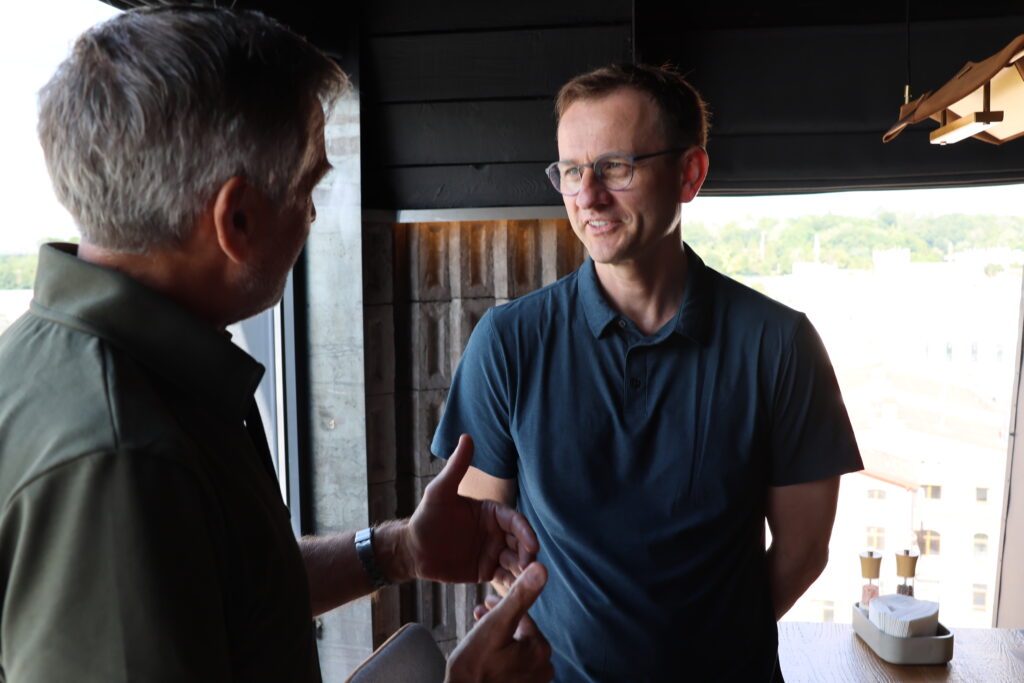
Hopes for Air Defense
Despite the ongoing war, Lviv hopes to reopen its airport soon. With adequate air defense, this could be possible.
“We hope for a Patriot missile battery,” said the deputy mayor. He also mentioned that air defense systems from Poland could protect the airport, as Lviv’s airspace is within range.
The Challenge of Transporting Fallen Soldiers
Irene Avetisian, coordinator for People’s Self Defense Lviv and our contact in Ukraine, used to run her own IT company but now works full-time for the organization without pay.
“One of the challenges now,” she said, “is transporting fallen soldiers home from the front. In the summer months, high temperatures and long transport times make this especially difficult.”
She highlighted the urgent need for refrigerated or freezer trucks to ensure dignified transportation for soldiers on their final journey.
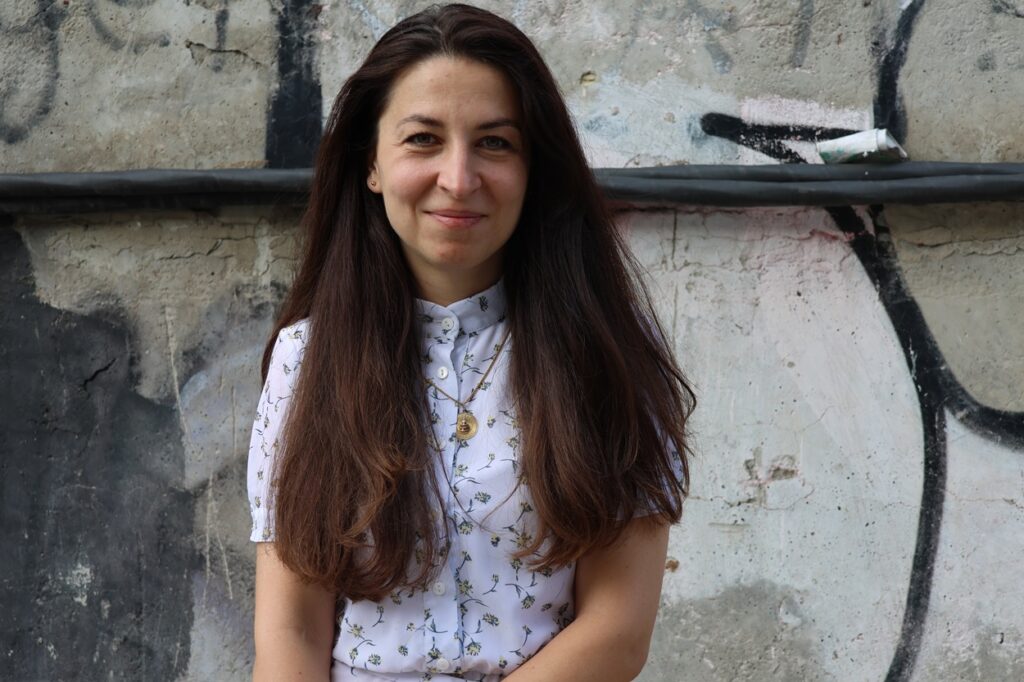
Frustration with Norwegian Bureaucracy
The visit to Ukraine was short but eventful, offering a glimpse of a pivotal moment in Europe’s history.
At the same time, it was disheartening to hear how Ukrainians perceive Norwegian authorities as more bureaucratic and difficult than other countries. Equipment funded and ready in Norway, desperately needed in Ukraine, remains stuck due to red tape.
It’s frustrating when politicians boast about allocating billions of kroner, but the aid stalls in government departments.
The transport included ten cars, three ATVs, drones, computers, monitors, 3D printers, camouflage nets, and powerful power banks—everything ordered by the units who immediately put the equipment to use.
It is impressive to see what Natalia Antonia Golis, Peter Frølich, and the other passionate volunteers in Fritt Ukraina accomplish. All contribute without pay, and the aid reaches its intended recipients.
It was a privilege to contribute, even in a small way.
If enough people contribute a little, Ukraine will win the war.
